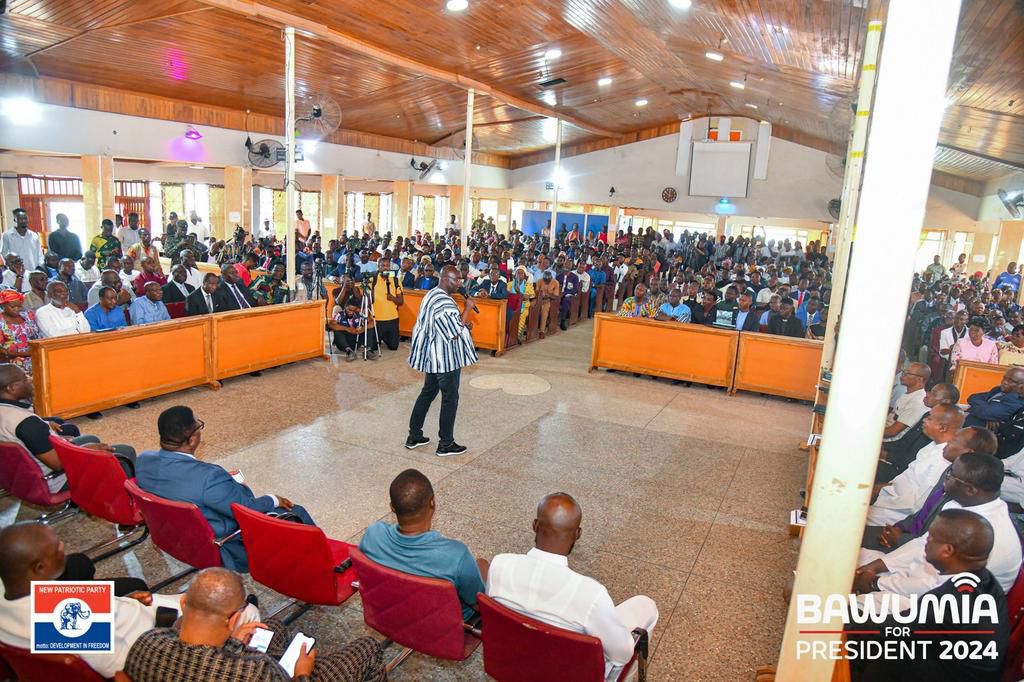This statement marks a departure from the conventional practice in Ghana, where religious institutions have typically enjoyed tax-exempt status due to their charitable activities and societal contributions.
Speaking during a meeting with clergy members in the Bono East region as part of his nationwide tour, Dr. Bawumia highlighted the significant role churches play in society and emphasized the need to recognize and reward their contributions. He expressed his belief that churches should be incentivised for their efforts in undertaking developmental projects and fostering community development.

In his remarks, Dr. Bawumia suggested that the government should consider providing financial incentives to churches to encourage continuing their positive impact on society.
He argued that, given the substantial work carried out by churches, they should be recognized and supported rather than burdened with taxes.
“Unless you don’t understand the work the church has done. If you look at the buildings, the way they keep the society together, the universities, the hospitals, the schools, it is massive. It is just massive. Many churches have hundreds of schools. So I don’t see and will not have a situation where we tax churches.”
“We would rather want to incentivize churches to support what the government is doing. I want us to be partners in the way that the development partners are with us. You are our domestic development partners and we will incentivise you to do more.”
This proposal represents a potential shift in government policy towards religious institutions, signaling a new approach to the taxation of churches in Ghana.
While the specifics of Dr. Bawumia's plan remain to be seen, his comments have sparked discussions about the role of churches in society and the appropriate relationship between religion and the state.
)
)
)
)
)
)
)
)
)
)
)
)
)
)
)
)